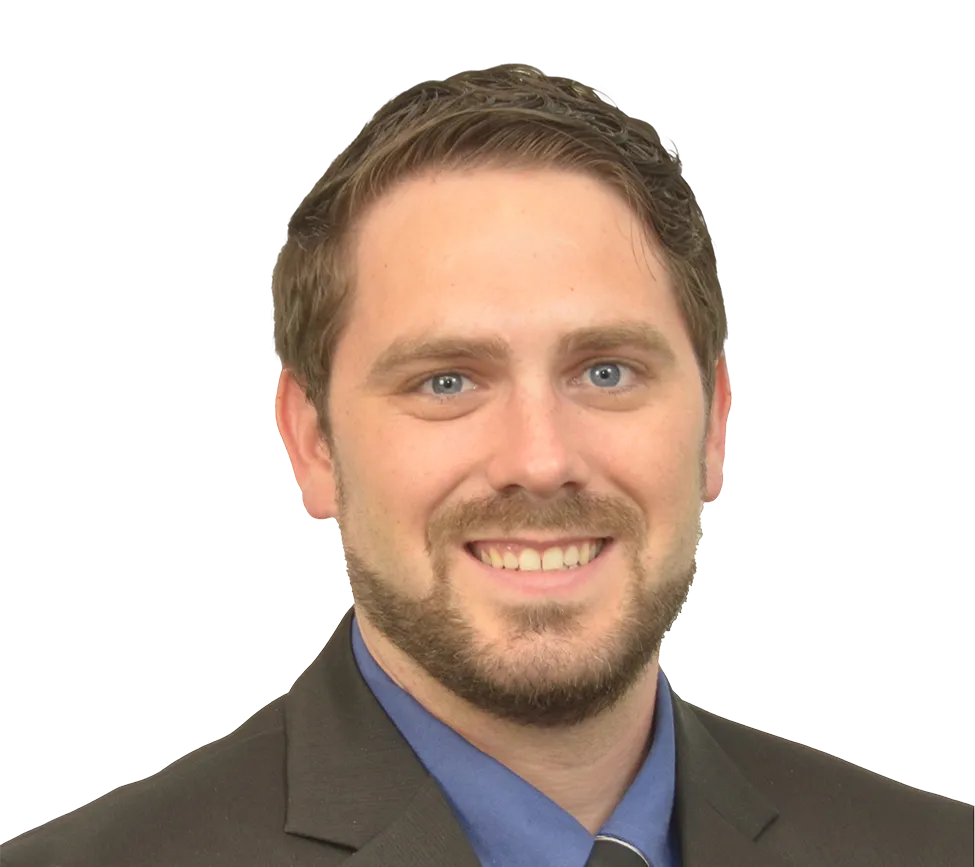

- Ph.D., Civil Engineering, Clemson University, 2021
- M.S., Civil Engineering, Clemson University, 2017
- B.S., Civil Engineering, Clemson University, 2015
- Professional Engineer, Florida, #96183
- Professional Engineer, Georgia, #PE050399
- Professional Engineer Civil, Mississippi, #36093
- Professional Engineer Civil, North Carolina, #060214
- Professional Engineer Civil, South Carolina, #43544
- Best Student Paper Award in the Dynamics of Civil Structures Technical Division at IMAC-XXXIX, 2021
- NRT Fellowship, 2019-2021
- GAANN Fellowship, 2016-2019
- Los Alamos Dynamic Summer School Fellowship, 2017
- RCI-IIBEC Student Scholar, 2013
- American Society of Civil Engineers (Member)
- American Institute of Steel Construction (Member)
Dr. Locke is a licensed professional focused on the failure analysis, damage assessment, and risk mitigation of structural systems. In his time at Exponent, Dr. Locke has performed investigations involving a variety of structural systems (single & multi-family residences, high-rises, dams, bridges, historical buildings) composed of various building materials (concrete, steel, wood, masonry). He specializes in structural health monitoring and the evaluation of structures when subjected to sources of vibration (blasting, construction, earthquakes, vehicle traffic, and wind). He also has years of valuable experience evaluating the condition of interior finishes and building envelope components (facades, roofing, fenestrations, weather barriers).
As a consultant, Dr. Locke routinely attends site inspections, performs tests, reviews legal and project specific documentation, and conducts analyses utilizing code prescribed and mechanics-based procedures. He is well versed in municipal building codes and industry standards and routinely utilizes these resources when developing opinions. He is familiar with an assortment of engineering software packages (SAP2000, ETABS, RAM Structural Systems, Matlab) that he frequently leverages when evaluating planned and as-built structural designs, assessing performance of damaged or failed structures, and analyzing field data. His reliable engineering judgement and integrity provide a basis that allows him to give the dependable advice necessary for stakeholders to make informed decisions.
Prior to joining Exponent, Dr. Locke was a graduate student researcher at Clemson University, where he earned a Ph.D. in civil engineering. He was the recipient of the GAANN and NRT fellowships awarded to Clemson University by the US Department of Education and National Science Foundation. As a GAANN and NRT fellow, Dr. Locke took additional courses and worked on interdisciplinary research teams to solve problems related to infrastructure resilience; specifically, he conducted research identifying and mitigating the vulnerabilities of complex, critical, and interdependent infrastructure systems. Dr. Locke's primary research focused on the development of a mobile health monitoring strategy that utilizes vehicle mounted sensors and operational modal analysis procedures to continuously evaluate the health of bridges. Through his work, he was able to experimentally demonstrate the system identification capabilities of the indirect methodology, while also developing a Bayesian estimation framework capable of classifying physical damage through finite element model updating.
Apart from his primary academic institution, Dr. Locke has conducted research at the Los Alamos National Labs - Engineering Institute in New Mexico and at the Fraunhofer Institute for Structural Durability and System Reliability in Germany. While at these institutions, he gained experience conducting static and dynamic experiments on lab- and full-scale systems, working with nonlinear systems, performing data-driven uncertainty quantification on computational models, and utilizing machine learning techniques for structural health monitoring. Dr. Locke also has industry experience from internships and co-ops with various engineering firms. His industry work allowed him to gain experience overseeing construction projects, conducting visual inspections, and performing ASTM standards testing.
